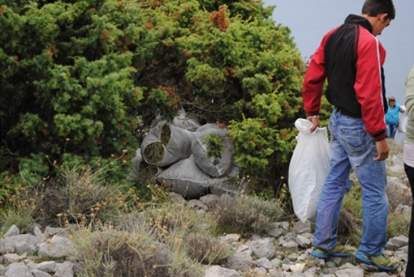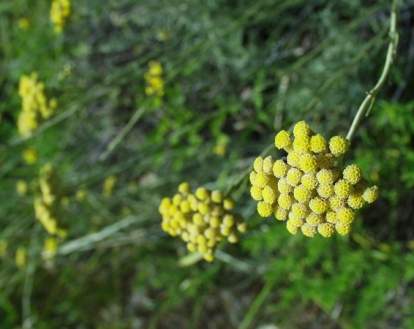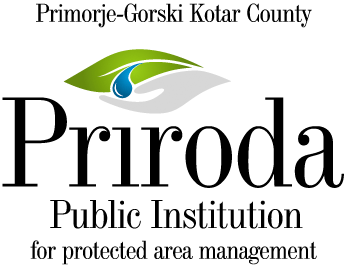
Photo 1: Unsustainable harvesting of the curry plant. When the plant is
pulled out by its roots, it is destroyed forever. (Photo archive of the
Town of Cres)
MASSIVE-SCALE COLLECTING OF MEDICINAL AND AROMATIC PLANTS ON THE KVARNER ISLANDS This year we are overwhelmed by the massive-scale collection
of wild medicinal and aromatic plants taking place on the islands of Cres,
Lošinj, Rab, Krk… Plant collectors went so far as to harvest the curry
plant in the protected botanical and zoological reserve on Prvić Island. HARVESTING WILD MEDICINAL AND AROMATIC PLANTS IN CPGK
– YES OR NO? Following a report that the curry plant was being collected
on Prvić Island, where such an activity has no place considering that
the island is a protected botanical and zoological reserve, 700 kilograms
of curry plant collected on the island were confiscated through the joint
action of the Maritime Police, Nature Protection Inspection and the Public
Institution “Priroda”, and charges have been brought against
the collectors. On other Kvarner islands, wildcrafting continues unabated
because the collectors have obtained valid permits for commercial harvesting.
Hence, that type of harvesting is completely legal, at least as far as
what is written on the permit is concerned (providing, of course, that
harvesting is carried out strictly according to the nature protection
guidelines prescribed in the permit). Residents, local self-government units, sheep-farmers,
bee-keepers and tourism workers, however, find such incidents disturbing
and look upon massive-scale commercial harvesting as the ruthless devastation
of local resources on which their livelihoods rest, with no benefits for
them. Bee-keepers, in particular, are disgruntled because their
livelihoods are threatened. The Kvarner islands are one of the places
where Damir Zanoškar, an experienced bee-keeper, brings his honeybees.
Mr Zanoškar explained that the flower of the curry plant is a vital source
of pollen for bees in the summer period when other bee pastures are poor.
He pointed out the example of a bee-farmer from Sv. Juraj, whose local
curry-plant honey won a world prize. He considers the harvesting of wild
plants to be a tragedy of our region (Photo 2) and speaks in favour of
the controlled cultivation of medicinal and aromatic plants. There is an unusually large number of harvesters this
year, which makes it difficult to supervise them and their actions in
the field. Are they really harvesting in compliance with regulations (Photo
1)? Apparently, harvesters have spread en masse from the southern regions
of the Adriatic coast on to the Kvarner islands, driven by the growing
demand for precious raw materials of essential oils which seem to be worth
their weight in gold. This kind of harvesting has no regard whatsoever
for the distinctive visual and olfactory elements of the landscape; it
ignores the fact that medicinal and aromatic plants help to create the
special atmosphere of the Kvarner islands which makes them unique in the
world (think of the luscious fragrancies of Mediterranean plants rich
in volatile essential oils that surround us when we set foot on any of
the Kvarner islands!) For example, because of its rich flora and fauna,
Cres Island is branded as an eco-island, Lošinj Island as an island of
fragrances, Ilovik as an island of flowers, Krk Island as a rich oasis
of (bio)diversity… If we allow this indispensable sensory element of the
landscape, such as the blossoming flower heads of the curry plant, to
be wiped out in large areas of the Kvarner islands (Photo 3), imagine
what an adverse effect that would have on a visitor’s experience of the
islands. Given the fact that the economy of the Kvarner islands
is mostly tourism oriented, we feel that the use of natural resources
in such a way and to such an extent is unsustainable. We also speak in
favour of the controlled cultivation of wild medicinal and aromatic plants
or, at the very least, the harvesting of wild plants should be carried
out strictly according to guidelines. Quotas and geographical coordinates
of local and restricted areas, in which harvesting is allowed, need to
be precisely defined (obviously, in agreement with all stakeholders –
local communities, bee-keeper, sheep-farmers, tourism workers, and others).
Closed harvesting seasons should be established during which harvesting
would be prohibited to enable resources to recover. In our opinion, what
is most important is that the local communities gain a long-term and sustainable
benefit from these resources which should be exploited exclusively through
sustainable management. Marko Modrić i Marko Randić 
Photo 2. Is this type and scale of harvesting sustainable in the long
run? (Photo archive of the Town of Cres)

Photo 3. What are we doing to the landscape and nature when we deprive
large areas covered in curry plant of the plant’s characteristic, fragrant
flowerhead? (Photo by M. Randić)
|





